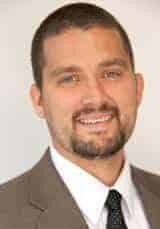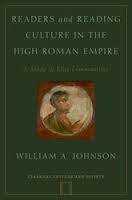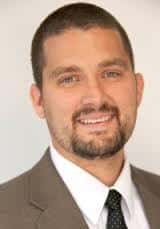 Today’s “aha” moments post is by Chris Keith, Professor of New Testament and Early Christianity and Director of the Centre for the Social-Scientific Study of the Bible, St Mary’s University, Twickenham. One of Keith’s interests is the application of social memory theory to the Gospels and historical Jesus. His most recent book is Jesus against the Scribal Elite: The Origins of the Conflict
Today’s “aha” moments post is by Chris Keith, Professor of New Testament and Early Christianity and Director of the Centre for the Social-Scientific Study of the Bible, St Mary’s University, Twickenham. One of Keith’s interests is the application of social memory theory to the Gospels and historical Jesus. His most recent book is Jesus against the Scribal Elite: The Origins of the Conflict. His other books include Jesus, Criteria, and the Demise of Authenticity
(edited with Anthony Le Donne) and Jesus’ Literacy: Scribal Culture and the Teacher from Galilee. He blogs, along with Anthony Le Donne, at The Jesus Blog.
And in case you’re keeping score, this is the fourth “Chris” who has contributed to this series.
********
I grew up in the Bible Belt and was raised in a loving Christian home. If church was open, we were there—Sunday mornings, Sunday nights, and Wednesday nights. I’m a seasoned veteran of the youth group, church plays, VBS, sword drills, and the rest, though to the best of my knowledge, I encountered words like “inerrancy” and “infallibility” only later at Cincinnati Bible College (later named Cincinnati Christian University).
Between my home and church, my youth left me with a view of the Bible as something of a holy answer book that was particularly clear about four things: you shouldn’t drink; you shouldn’t have sex before you get married (and asking what counts as “sex” is definitely missing the point of the lesson); you don’t wear jeans to church; and you don’t wear a hat indoors.
I suppose a crash was inevitable.
My particular inevitable Scripture crash happened at Cincinnati Christian University and came directly on the heels of a desire to take the Christian faith seriously and as a direct result of actually reading the Bible and studying it.
I suppose I could trot out the traditional fare concerning the realities of Scripture that produced “aha moments”: the day of Jesus’ crucifixion in the Synoptic Gospels and John; David’s census in 2 Samuel 24 and 1 Chronicles 21; Paul’s Hagar allegory in Galatians 4; the sexual violence and erotic language in Judges 19, Ezekiel 23, and Song of Solomon. Let’s include in that mix the stories of Tamar and Onan, which somehow never made it into youth group talks.
I could also trot out the traditional fare about simply acquiring more knowledge about language and interpretation. Saussure, Derrida, Foucault, Kristeva, and others made me reconsider entirely what the Bible, as language, was even capable of being and not being.
Others in this series have mentioned similar “aha moments” as these, so there’s not much point in cycling through them again. Also, I don’t remember any one of these texts or issues producing a cataclysm of faith-shattering significance, with the exception of my critical theory stage, which, though short-lived, was pretty rough on my faith.
For me there was another, equally important, “aha moment”—or better, series of moments—that came not at the hands of the text itself but at the hands of the defenders of hard-line views of Scripture like inerrancy, particularly certain fundamentalist systematic theologians.
I have no ill will toward these men (they are all men) but it was nevertheless the case that, as I sat in classes and watched them articulate their views—that is, both how they handled Scripture and how they described those who held alternative views—two things affected me I deeply.
First, I quite simply couldn’t buy their readings of Scripture. I couldn’t help but feel they were not fully honest with me. They seemed to have predetermined the nature of the text before ever taking the text itself—and all of it—into account.
When one text says God made David take a census and another says Satan did, well, we call that a contradiction in any other realm of communication. I also had a particular situation in a seminary class where one of the systematic theologians was talking about why it’s illegitimate to practice an interpretive stance that appreciates individual biblical authors’ perspectives without insisting that they harmonize with each other (though not all inerrantists insist on harmonizing).
I asked why and he said, pausing dramatically and pointing a figure toward me, “Because that would deny that there is one author.” An older gentleman in the class liked what he heard and shouted, “Wow! You didn’t have to go that deep on him, Dr.!”
I’ll never forget the precise thought that ran through my head at the time because it took everything in me to suppress it: “That’s not deep; it’s the exact opposite and a cop-out. This is a deus ex machina in action.”
The Bible might be more than a product of human communication, but it’s certainly not less.
At the time, and still now, I had/have to believe that if there’s any truth in Christianity, it includes the idea that Christians should be honest. Too often, it seems to me that an inerrantist approach to Scripture has difficulty with the Bible we actually have in our hands.
Second, I was astonished at how (some) defenders of inerrancy and the like treated those who held alternative views.
When they went through their lists of heroes and villains in class, almost all their villains were other Christians, and usually other conservative Christians. Their language for them was sometimes vitriolic, always patronizing, and almost always de-humanizing.
These enemies were not individuals with families, just trying to make the best they can of the human project in theological terms; they were heretics who needed to be attacked, branded, and outed.
theological terms; they were heretics who needed to be attacked, branded, and outed.
William A. Johnson has a great book, Readers and Reading Culture in the High Roman Empire: A Study of Elite Communities, about how ancient reading practices were intricately intertwined with the reading communities’ identities. His point extends into the present.
What a group reads and how it reads it is always hardwired in some ways into the very core identity of that group, and so I cannot adequately describe my changing views of Scripture without including the social realities in which those changes were embedded.
I took a long hard look at the reading community on display in some of my theology classes. I looked at the way they handled the text and the fruits of their reading strategies—the way they treated others who handled it differently. I wanted nothing to do with it.
I knew there were Christians who held their views with a dose of humility and recognized the limits of anyone’s understanding, and thus self-consciously created space for ample disagreement within a community of interpretation and engagements with those outside that community.
I placed myself in that group. I was interested in learning from others, not fighting with them as a primary mode of interaction.
I know many humble, very kind and intelligent people who hold to inerrancy or similar views, and I wouldn’t want to suggest otherwise. But it’s also true that, for those of us who make a living in this discussion and whose families have been affected by the carnage of prideful and narrow biblical interpretation, it sometimes really does only take one bad apple to spoil the bunch.
It seems that, in their Bibles, Jesus said that we should love our enemies unless they disagree with us theologically or hermeneutically, in which case it’s alright to mistreat them. It’s a reactionary and defensive stance that I don’t find consistent with 2 Timothy 1:7 (“…for God did not give us a spirit of cowardice, but rather a spirit of power and of love and of self-discipline.”).
It’s always come across to me as having fear at its base, and I had/have no desire to proceed out of fear.
So my “aha moments” weren’t limited to reading the Bible carefully. They included such reading and, on that basis alone, I would never have been able to sustain the view of the Bible that my youth gave me or the view of “inerrancy” that I encountered among some of my university and seminary professors.
Beyond this, however, my “aha moments” included watching the actions of some of those who patrol the borders of reading communities that affirm concepts like “inerrancy.” If their actions were what an allegedly “high” view of Scripture looked like in practice, I wasn’t interested.
I continue to think as well that a truly high view of Scripture is a view that allows Scripture to be whatever it is. In this sense, I was really fortunate to study at Cincinnati Christian University with Bible scholars who modelled an alternative hermeneutic that was still committed to the text, and—from my perspective—even more committed to it.

